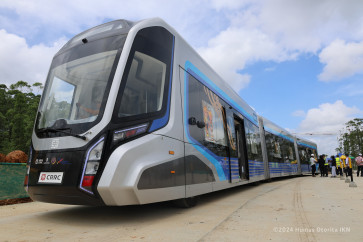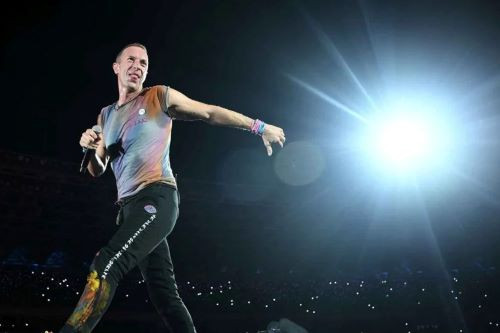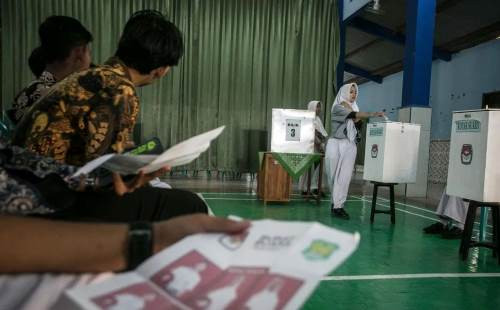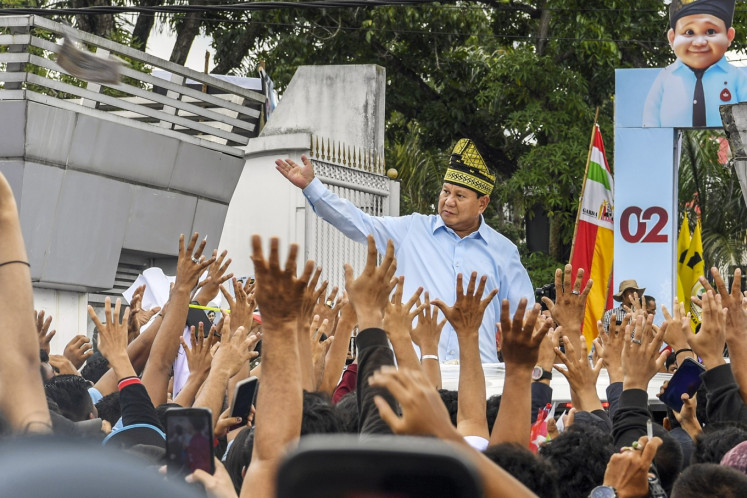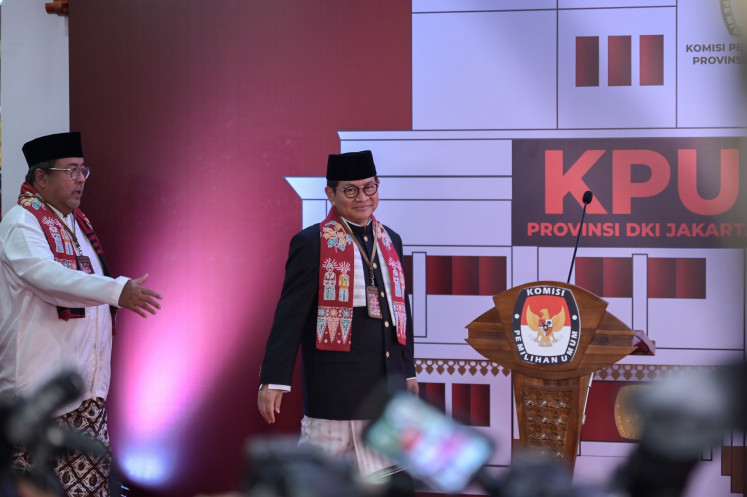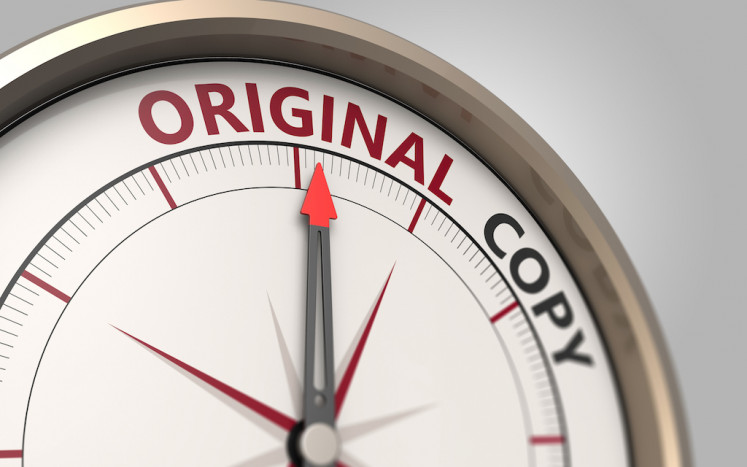Age of extremes
European politics today is showing a worrying trend, swinging between the far left and far right instead of finding compromise in a more centrist-oriented position.
Change text size
Gift Premium Articles
to Anyone
 German Chancellor Olaf Scholz (left) and French President Emmanuel Macron attend a Group of Seven event to announce the Joint Declaration of Support for Ukraine on July 12, 2023, during the NATO Vilnius Summit in Lithuania. (AFP/ANDREW CABALLERO-REYNOLDS )
German Chancellor Olaf Scholz (left) and French President Emmanuel Macron attend a Group of Seven event to announce the Joint Declaration of Support for Ukraine on July 12, 2023, during the NATO Vilnius Summit in Lithuania. (AFP/ANDREW CABALLERO-REYNOLDS )
D
emocracy is always messy, but the level of messiness has apparently reached a new level in Europe, especially after France’s snap election on June 30th.
For those concerned about the rise of the extreme right in France, the outcome of that election should have come as encouraging news, with the left-wing alliance managing to secure enough votes to block the far-right National Rally of Marine Le Pen.
Yet, the prospect of a political deadlock due to the leftist coalition’s unwillingness to cede ground to more centrist parties could lead to the nightmare scenario of a hung parliament.
The prospect of France without a government seems likely, and at a time when it has important business to attend to, from hosting the Paris 2024 Olympics to building a united front for Ukraine in the war against Russia, which is now in its third year.
France is one of the few European countries where centrist parties cannot gain a foothold, where voters have not punished a previous technocratic government for its perceived failures by favoring parties with ideologies on either end of the extremist spectrum to correct the problem.
If President Emmanuel Macron was punished for his market-friendly reforms aimed at improving France’s competitiveness, the Netherlands has swung harder to the right with voters laser-focused on the immigration issue.
The victory of Geert Wilders’ anti-immigration, far-right Party for Freedom (PVV) in the Dutch election earlier this year was primary the result of voter discontent against his predecessor Mark Rutte’s handling of the asylum system.
The Netherlands has long been seen as the bastion of political stability with sensible politicians making rational decisions, such as Rutte, who has gone on to become NATO secretary-general.
But the PVV’s win has shattered that image.
And even with Dick Schoof, who is seen as a steady hand in Dutch politics, now in charge as prime minister, we can’t be sure about the prospects of political stability in the country, especially after we recently saw Wilders castigating his own prime minister at parliament for failing to defend members of his coalition.
Germany is another country where the center has no hold, but the situation there has been looking bleak in the past few months as the far-right Alternative for Germany (AfD) continues to gain ground.
In the European Parliament election in June, AfD came in second with 15.9 percent of the vote, behind the Christian Democrats with 30 percent. The biggest loser was of course German Chancellor Olaf Scholz’s center-left Social Democratic Party (SPD), which garnered just 13.9 percent.
Scholz has been struggling to govern effectively since late 2021, and the SPD’s drubbing in the European election indicated a vote of no confidence from the German electorate.
Chaos in the domestic politics of some European Union countries comes at a time when the continent is dealing with multifaceted challenges, from the Russian threat on their doorstep and its fractious trade relations with China to the immigration and climate crises.
Grassroots voters might have thought that in times of extreme crises, they need to resort to the extreme solutions offered by the far left and far right.
We can certainly understand that politicians from both sides of the aisle want to protect their popularity, but politics is also about seeking compromise and if the ultimate goal is to defeat far-right groups, forming a coalition between left and centrist parties shouldn’t be a bridge too far.
The last thing we want today is for skeptics to believe that democracy doesn’t work and can result only in a political impasse.
The alternative for Europe could be far worse.


